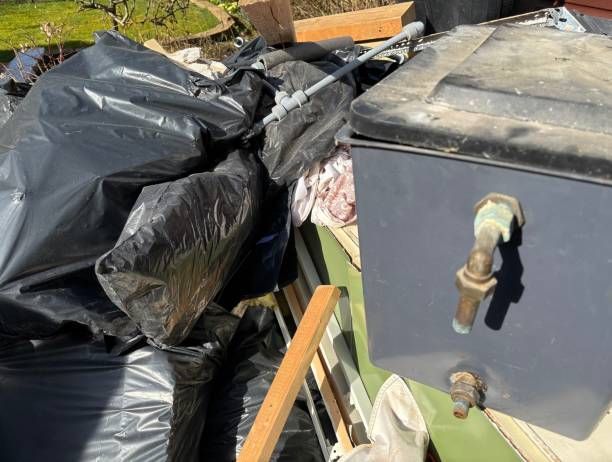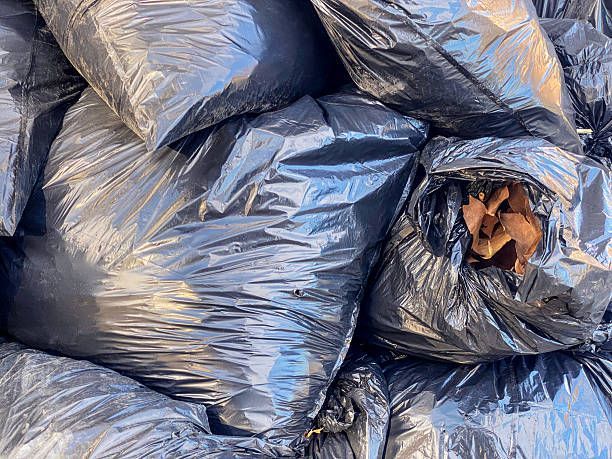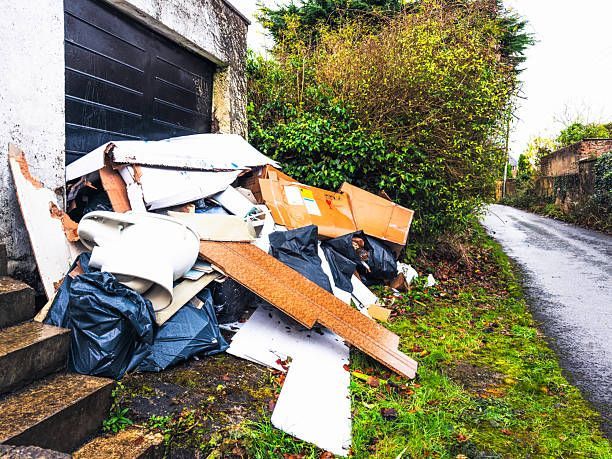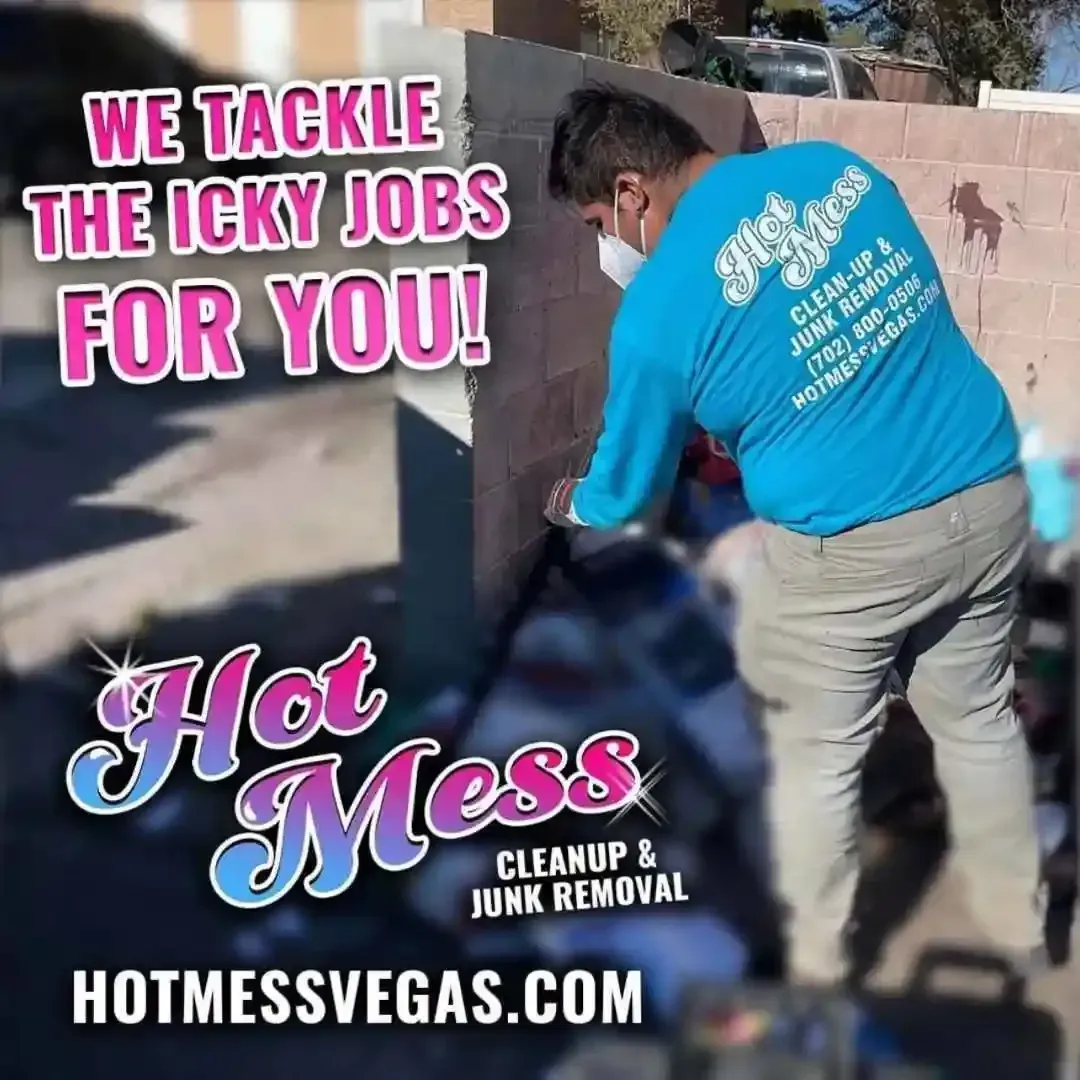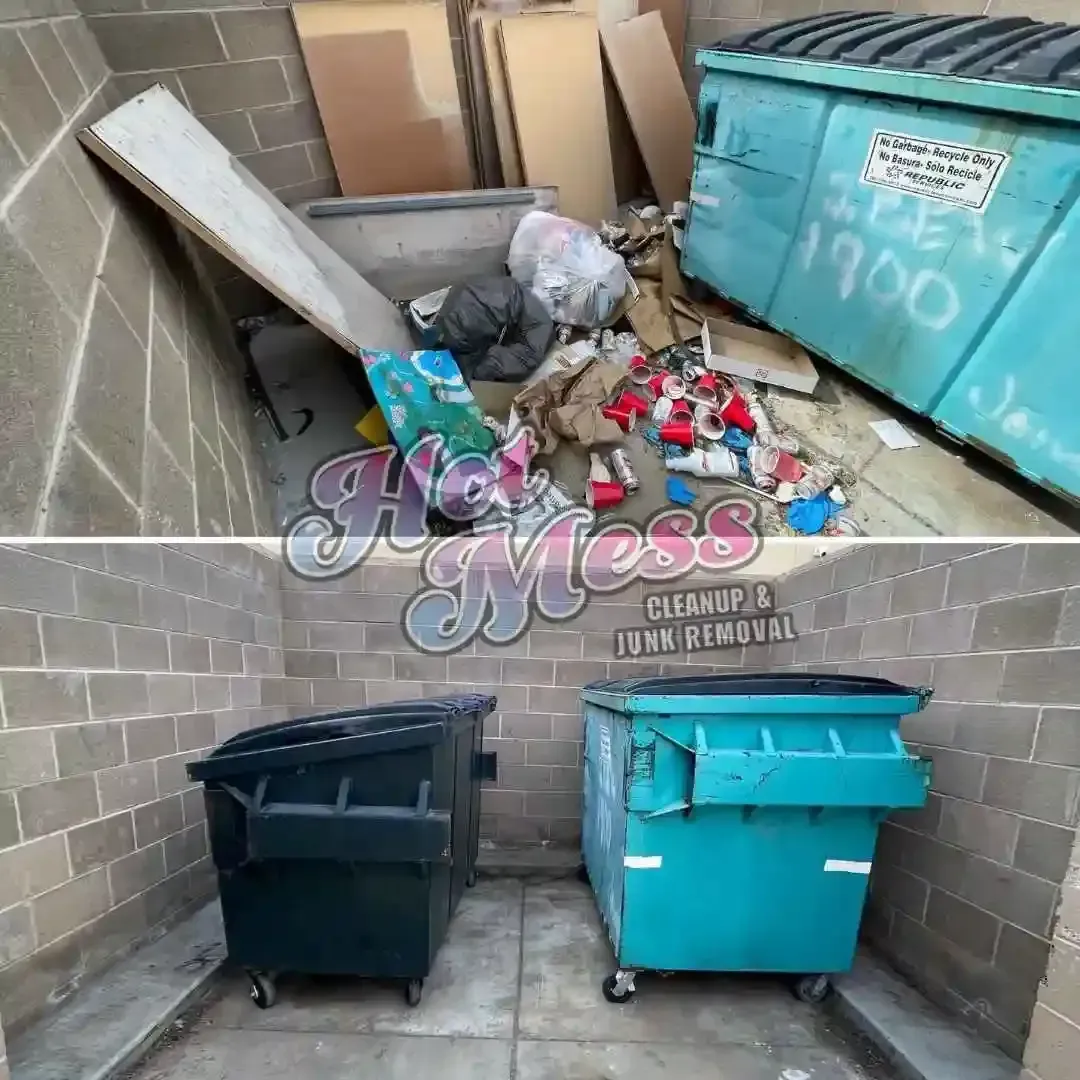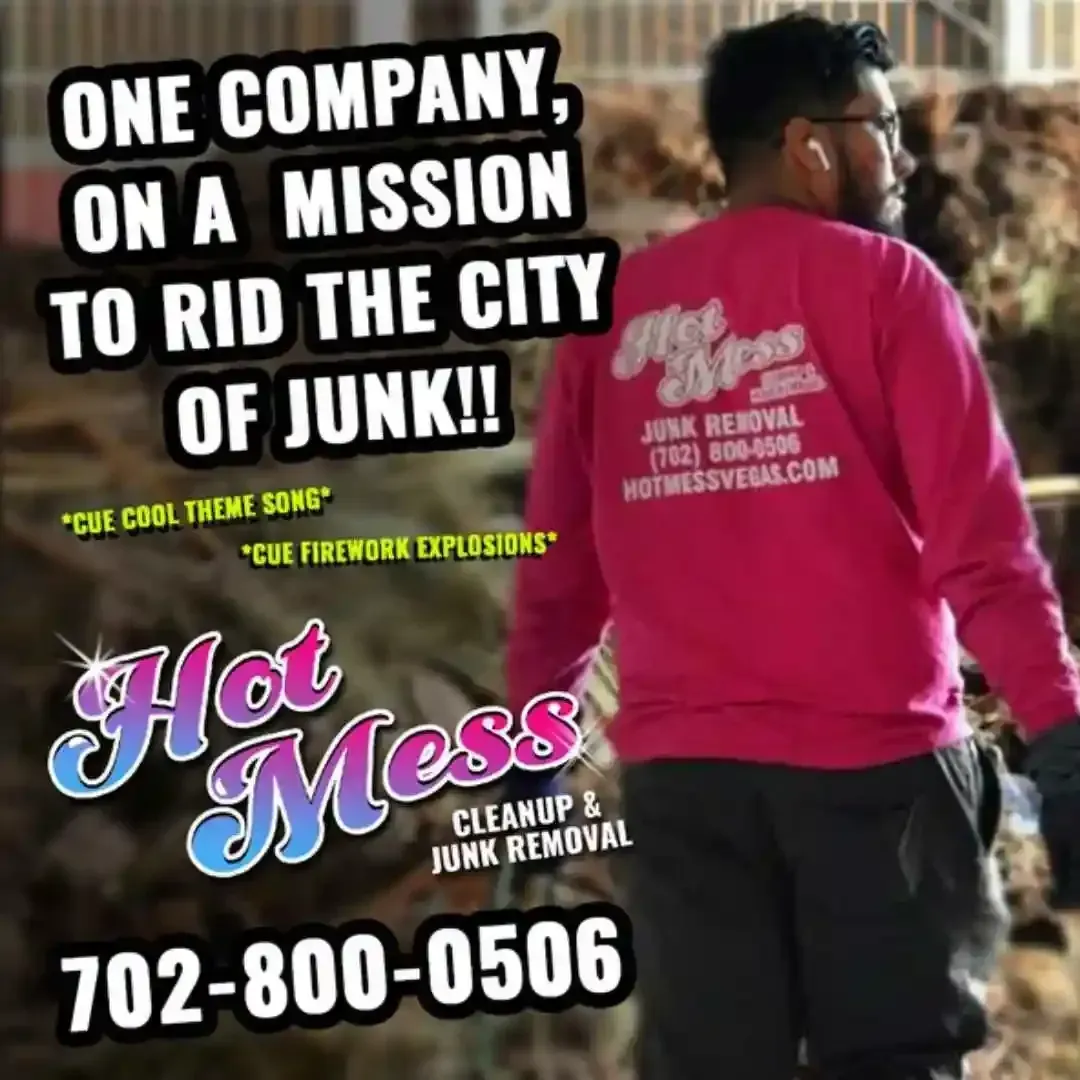How to Prepare for a Foreclosure Cleanout
When facing a foreclosure, the process can feel overwhelming and emotionally taxing. Beyond the legal proceedings and financial implications, one major responsibility that homeowners may face is preparing for a foreclosure cleanout. This involves clearing out personal belongings, debris, and any other remnants of the home’s previous life to prepare it for the next chapter. It’s not just about tidying up – it’s about ensuring that the property is ready for inspection, sale, or transfer to its new owners.
However, preparing for a foreclosure cleanout is not something that should be rushed. It requires planning, organization, and a clear understanding of what’s involved. Whether you're handling the cleanout on your own or hiring professional services, this guide will help you navigate the steps to get it done efficiently and effectively.
Understand What a Foreclosure Cleanout Entails
A foreclosure cleanout is the process of removing all items left behind in a property after a foreclosure. This can include everything from furniture and appliances to personal belongings, trash, and debris. For the new owners or the bank handling the property, the cleanout is crucial to restore the property’s condition and value.
At the heart of a foreclosure cleanout is the need to return the property to a neutral state. Whether it’s to list the property for sale, prepare for an auction, or to ensure the property is legally cleared for transfer, cleaning out the house and removing all personal items is necessary. But it's not just about throwing things out; it’s about making the property as clean, safe, and appealing as possible.
Get Organized Early
One of the first steps to preparing for a foreclosure cleanout is organization. Procrastination can make the process much harder, so it's essential to start early and plan ahead. Begin by categorizing the items in the home:
- Personal Belongings: These could be sentimental items such as photos, letters, clothing, or keepsakes. Decide whether to keep, donate, or dispose of these items. If you’re the one handling the cleanout, this will be the most time-consuming part of the process.
- Furniture and Appliances: Many homes with foreclosures may still have large items like couches, tables, refrigerators, or washing machines. Some may be in decent condition, while others could be damaged beyond repair.
- Trash and Debris: Foreclosed homes often accumulate trash, broken appliances, or even hazardous materials that need to be disposed of properly.
- Valuable Items: It’s important to determine if there are any valuables left behind that need to be retrieved. Jewelry, documents, or collectibles may be worth salvaging.
Secure the Necessary Resources
Before you start a foreclosure cleanout, securing the right resources is essential to ensure the process goes smoothly. Depending on the size and condition of the property, you might need various tools, containers, and services. It’s essential to have adequate cleaning supplies, such as disinfectants, gloves, and protective gear. For the actual removal of items, trash bags, boxes, and even heavy-duty equipment may be necessary for larger pieces. For big cleanups, consider renting a dumpster or organizing a dumpster pickup service to ensure you have an efficient waste disposal solution.
Additionally, if the property contains large or heavy items, you may need moving equipment or a team of helpers to assist with lifting and transporting furniture and appliances. The proper resources will not only expedite the process but also keep the work organized and efficient. When the necessary equipment is in place, you’ll avoid interruptions and have a smoother cleanout experience that can save you both time and effort.
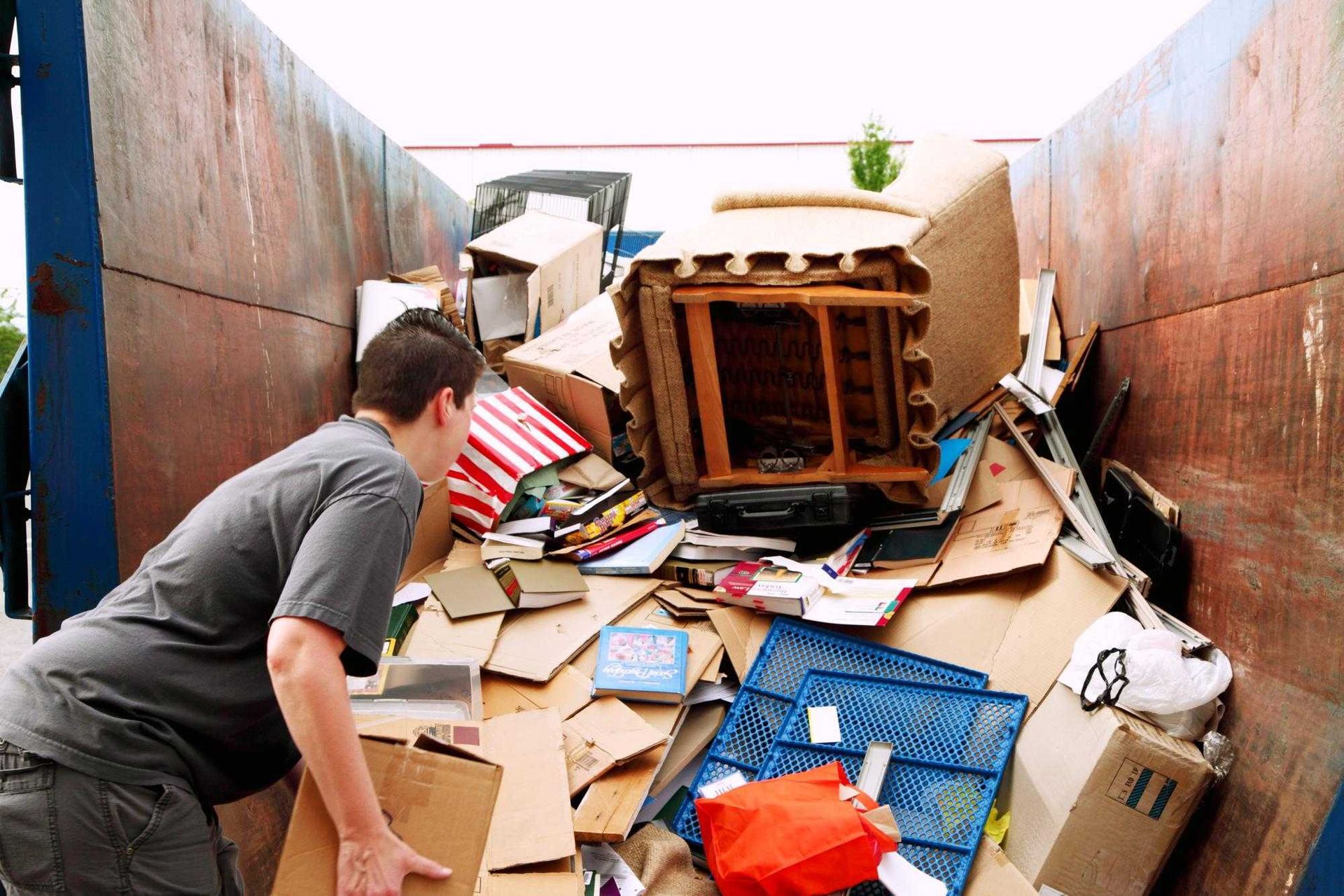
Address Potential Hazards
When preparing for a foreclosure cleanout, safety should be your top priority. In many foreclosed properties, hazards can be present due to prolonged vacancy, lack of maintenance, or neglect. It’s crucial to assess the property for potential health and safety risks, such as mold, mildew, or pest infestations. Mold, especially in damp or neglected areas, can cause respiratory issues, and prolonged exposure can be harmful. Therefore, you should always wear protective gear, such as masks and gloves, when cleaning out spaces with suspected mold or mildew. If the issue is widespread, it might be best to call in a professional mold remediation service.
Pest infestations can also pose a serious problem, as rodents, insects, and other pests can leave behind harmful waste, damage the property, and create unpleasant living conditions. If pests are visible, contact a pest control professional before starting the cleanout. Additionally, check the home for structural issues such as broken windows, sharp objects, or exposed wires that could cause injury.
Sort Through the Belongings
Sorting through the belongings left behind in a foreclosed home is one of the most time-consuming steps in a cleanout. The first task is to categorize the items and determine their condition. Many homes have leftover furniture, clothing, appliances, and even valuable items that need to be carefully examined. For those personal belongings that may have sentimental value, you might decide to keep them, donate, or give them to family members. For items that have little value or are too worn out, discarding them will be the best option. This stage requires thoughtful decision-making to ensure you don't overlook any important items.
Donating usable items to local charities or recycling can be an environmentally-friendly way to deal with belongings that are still in good condition. If some of the belongings are considered valuable, such as antiques, electronics, or jewelry, it’s important to evaluate their worth. You may want to contact an appraiser or specialist if you're unsure about the value of certain items. Sorting through personal possessions carefully ensures that valuable or meaningful items are preserved while non-essential belongings are removed efficiently.
Make Necessary Repairs and Touch Ups
Once the cleanup process is underway, making necessary repairs and touch-ups is crucial to increase the home’s appeal and functionality. Foreclosed properties often suffer from neglect, which can lead to issues such as broken windows, missing shingles, or even plumbing and electrical problems. Start by assessing the home for any visible damage. Focus on areas that might present safety risks, such as loose floorboards or exposed wiring. Minor repairs such as filling in holes in the walls or touching up chipped paint can dramatically improve the home’s look without costing much.
In addition to fixing obvious issues, consider making improvements that can help increase the property’s value. Repainting the walls, replacing old light fixtures, or fixing any leaky faucets can make the house more appealing to potential buyers. If the property has any landscaping that’s overgrown, it’s worth trimming the bushes or mowing the lawn. Even small changes can boost the property’s curb appeal and make it much easier to sell or prepare for inspection. These improvements also ensure that the property meets the standards expected during a final walkthrough.
Dispose of the Junk Properly
Disposing of junk and debris in a foreclosure cleanout requires careful attention to local regulations and environmental concerns. Certain items, like old appliances, electronics, or hazardous materials such as chemicals, paint, or batteries, cannot be disposed of in regular trash bins. These materials need to be handled in a special way to ensure they are properly disposed of at recycling centers or hazardous waste facilities. Failing to dispose of such items properly can result in fines or environmental harm. Therefore, it’s essential to be familiar with local disposal rules and regulations before beginning the cleanup process.
For larger cleanouts, consider renting a dumpster to make waste removal more convenient. A dumpster gives you a designated space to collect and sort trash, which can help streamline the cleanout process. However, be sure to separate recyclables and hazardous materials from general waste. Some junk removal companies offer services where they sort, transport, and dispose of items responsibly, ensuring that everything is handled properly and efficiently. Taking the time to dispose of junk in an environmentally conscious and legal manner helps prevent future complications and ensures the home is properly cleared out.
Prepare for Final Inspection
After the majority of the cleanout is complete, it’s important to prepare the property for the final inspection. This step is crucial, especially if the property will be sold, transferred, or listed for an auction. Inspect the house thoroughly, checking for any overlooked debris or areas that might need further cleaning. A fresh coat of paint or minor touch-ups might be necessary to ensure the property looks well-maintained and attractive. Pay attention to both the interior and exterior, as curb appeal can be just as important as the condition inside the house.
Once the final walkthrough is complete, take photos of the property to document its condition. These photos can serve as a reference in case there are any disputes or questions during the inspection or sale process. Preparing the property for final inspection ensures that everything is in place and that the home is presented in its best light. It also helps create a smooth transition to the next phase of the foreclosure process, whether that involves listing the property for sale or transferring it to new ownership.
Conclusion
Preparing for a foreclosure cleanout is no small task. It involves organizing, cleaning, repairing, and properly disposing of belongings while keeping in mind safety, efficiency, and legal considerations. However, with the right approach, the process can be made easier. Whether you're managing the cleanout yourself or hiring professionals to assist, taking a systematic and thoughtful approach will help ensure the property is ready for the next phase.
If you're located in Las Vegas, Nevada, and are looking for a trusted partner to handle your foreclosure cleanout, Hot Mess Cleanup & Junk Removal is here to help. Our team is ready to make the process as smooth and stress-free as possible. For more information or to get a free estimate, contact us today at 702-800-0506 or via email at info@hotmessvegas.com.
